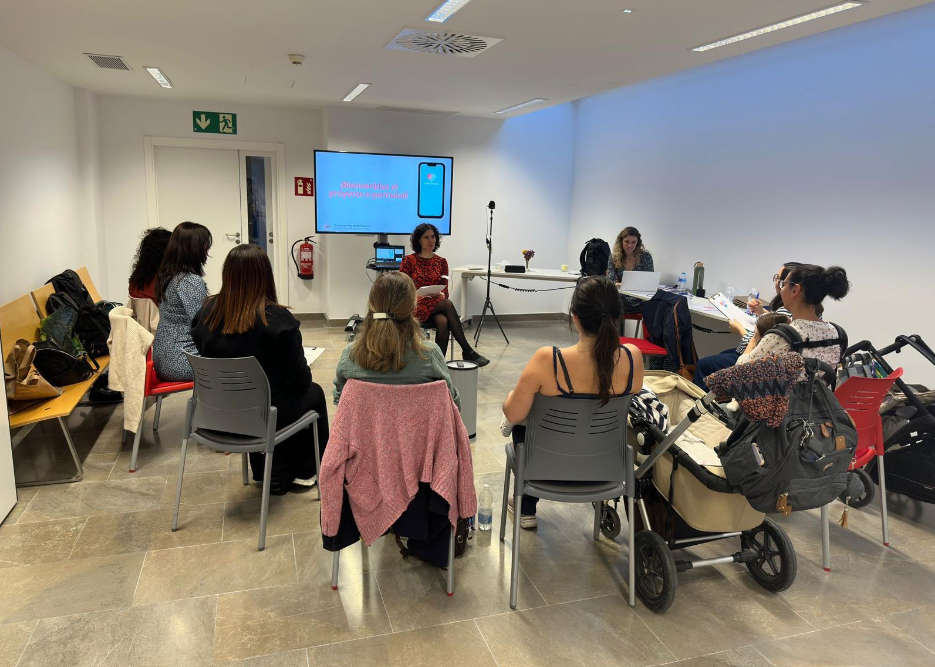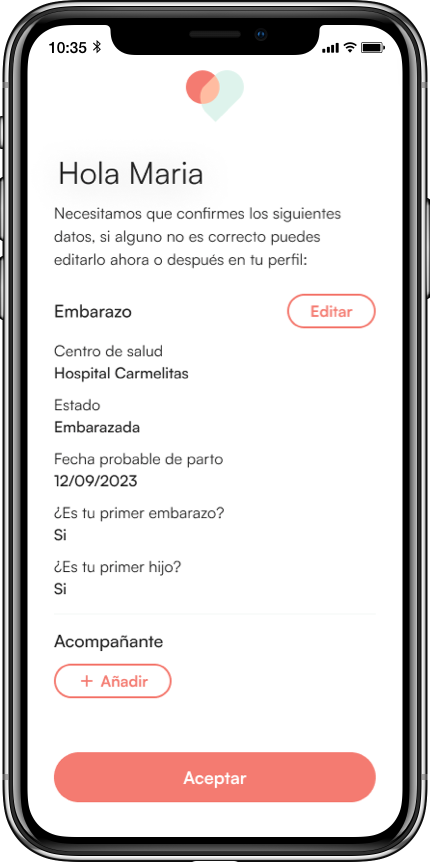Researchers of the e-perinatal project have conducted Focus Groups (hereinafter FG) with pregnant women and mothers on October 24, 2023 and February 21, 2024. These sessions were led by project researchers Dr. Stephanie Carretero and predoctoral researcher Paula de Juan. The research team provided staff to care for the mothers’ children while they attended the sessions.

The main purpose of these groups was to know the opinion of pregnant and postpartum women (up to 1 year after delivery) about the design and content of the mobile application e-Perinatal, whose aim is the universal prevention of perinatal mental disorders. Their experiences as women who are living this stage is very valuable, as it can contribute to design an optimal mobile application for future users to benefit from it.
The session lasted about an hour and a half and took place in the meditation room of Universidad Loyola (Seville Campus).

During the course of the sessions, the researchers began by welcoming the mothers and their babies and introducing the project. Afterwards, they were presented with some screenshots as an example of what they would find once in the app. In addition, they were able to review some examples of content that would appear in the app in different formats: text, podcast, video and infographics.
After being presented with this content, they filled out a survey asking specific questions related to the design and content on display. These same questions were then deepened during the focus group. The purpose of this analysis was to gain in-depth knowledge of the opinions of the mothers and pregnant women. The group discussion began, in which the participants could express their impressions about the design and content of the app, based on their experiences as women during the perinatal period.
Pregnant women and mothers emphasized that the app is evidence-based and coordinated with public health services.
The session was a scenario in which the reality of work-life balance in women’s daily lives could be seen. A safe space was created between women who had never met before, in which they shared their opinions and needs based on their experiences as mothers-to-be or new mothers, with the aim of improving the app.
The pregnant women and mothers gave feedback throughout the session on several strengths they consider the e-perinatal app to have. They highlighted that the app is evidence-based and coordinated with public health services.
They also commented that the app promotes co-parenting by including suggested interventions for couples so it does not burden the pregnant mother with the burden of parenting. They highlighted app’s accompaniment after childbirth. Mothers commented that from that moment on they feel abandoned or less supported by health services. They stressed the importance of mood assessment, because they themselves are not able to identify that they are not well because they focus too much on the baby and their self-care takes a back seat.
Pregnant women and mothers valued the forum very positively, since they have the opportunity to share or ask questions to other women and create a community. In addition, the consultation channel with experts in perinatal mental health was also very positively valued.
The e-perinatal team thanked them very much for their participation and rewarded them for their collaboration in the study by presenting them with an Amazon check valued at 28 euros.